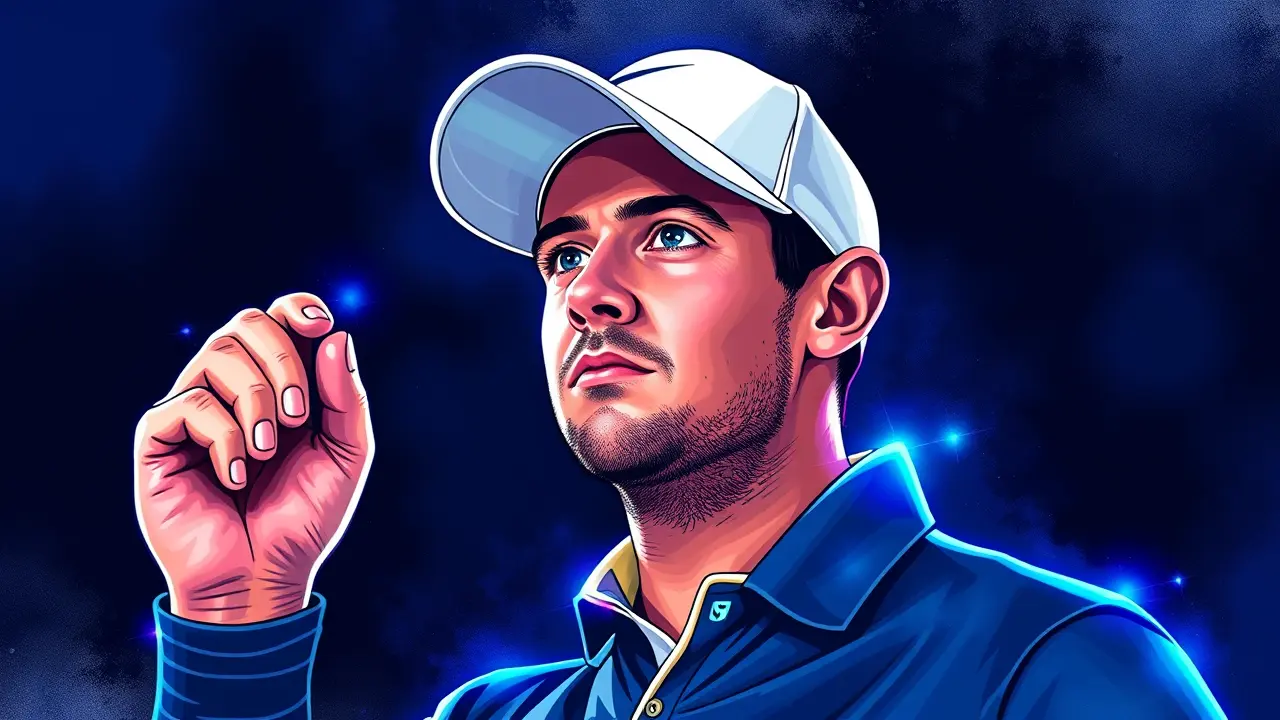Rory McIlroy eyeing European Ryder Cup captaincy, but not until mid-2030s
Rory McIlroy has emphatically thrown his hat into the ring for the European Ryder Cup captaincy, though golf fans will need to exhibit the patience of a major championship Sunday, as the Northern Irish superstar has declared his leadership ambitions are firmly on hold until the mid-2030s. Speaking ahead of the DP World Tour’s India Championship, McIlroy, fresh off a monumental season where he completed the career Grand Slam with a Masters victory and solidified his status as world number two behind only the relentless Scottie Scheffler, articulated a vision for his future that prioritizes his playing prime.'Absolutely, I’d love to be a captain one day,' McIlroy stated, his words carrying the weight of a man who has been a cornerstone of the European team for eight consecutive Ryder Cups. He cited his 'front row seat' under legendary captains as invaluable schooling, yet he immediately dismissed any notion of a near-future appointment, effectively ruling himself out for the 2025 contest at Adare Manor and likely the 2027 edition at Oak Hill.This calculated delay is a masterstroke of career management, reminiscent of how icons like Tiger Woods meticulously planned their legacies. At just 36 years old, McIlroy is arguably at the zenith of his powers, having racked up 29 PGA Tour wins and playing a pivotal role in Europe's thrilling 15-13 victory at Bethpage Black, their ninth win in the last twelve showdowns.To transition now to a captain's role would be akin to Lionel Messi retiring from international play to immediately become a manager; the competitive fire still burns too brightly. McIlroy was particularly adamant in shutting down any speculation about a playing captaincy, a romantic but increasingly anachronistic concept in the modern era.'I just think the commitments that a captain has the week of [the Ryder Cup],' he explained, detailing the labyrinth of extra media obligations, strategic meetings with vice-captains, and the pressure of crafting an opening ceremony speech. He contrasted today's global 'spectacle'—a multi-billion-dollar event scrutinized by millions—with the more intimate affair of two decades ago, where such a dual role might have been feasible.The sheer logistical and mental burden, he argued, would be 'a very difficult position to be in,' a sentiment echoed by the recent U. S.side's deliberation over Keegan Bradley, who ultimately opted for a singular focus. This pragmatic stance underscores a broader evolution in the Ryder Cup captaincy, which has transformed from a ceremonial honor into a high-stakes, full-time executive role requiring the strategic acumen of a chess grandmaster and the motivational prowess of a military general.Looking ahead, McIlroy's mid-2030s timeline neatly aligns with his anticipated competitive lifespan. If he maintains his elite level into his mid-40s, as modern fitness and technology allow, a captaincy at the 2033 Ryder Cup at The Olympic Club in San Francisco or, more fittingly, the 2035 event on European soil, becomes a compelling narrative.This would place him in the lineage of other great player-captains like Tony Jacklin, who revolutionized Europe's approach in the 1980s. By that point, McIlroy would have accumulated nearly three decades of Ryder Cup experience, both as a warrior and an observer, granting him an unparalleled depth of knowledge on American courses, team dynamics, and the psychological warfare that defines the event.His eventual leadership will not merely be about filling out a lineup card; it will be about channeling the spirit of Seve Ballesteros, the tactical genius of José María Olazábal, and the calm authority of Thomas Bjørn. For now, the golf world must simply watch and wait, appreciating the final chapters of one of the game's greatest playing careers, knowing that the masterplan for Captain McIlroy is already being drafted, with the first move scheduled for a decade from now.
Latest News
The charts are whispering what the true believers have felt in their bones for weeks—Dogecoin is carving out a bottom.
17 hours ago5 comments
The Institute for Fiscal Studies has thrown a stark warning onto Rachel Reeves's desk, urging the Chancellor to confront a potential £22 billion shortfall in
17 hours ago3 comments
Alright, let's break down this absolute heater of a performance from the Chicago Blackhawks, because if you missed this one, you missed a party.
18 hours ago5 comments
The ice was hot last night in the NHL, folks, serving up a slate of games that felt less like a regular season Tuesday and more like a playoff preview with a
18 hours ago3 comments
The XRP chart is painting a tantalizing picture for those with the stomach to withstand the relentless pressure from crypto's leviathans.
18 hours ago4 comments
It’s in the small shifts, the quiet recalibrations of a Thursday morning, where the most meaningful change often takes root.
18 hours ago4 comments
In a move that sent ripples of quiet confidence through the crypto ecosystem, blockchain intelligence firms tracked a monumental treasury allocation from
18 hours ago4 comments
In a move that would have drawn a nod of approval from historical figures like Churchill, who understood the delicate balance of power within democratic
18 hours ago2 comments
JA
Jamie Wilson123k8 hours ago
wait what he's already planning for the 2030s that's wild tbh idk if i can think that far ahead
0
JA
Jamie Wilson123k15 hours ago
this reminds me of how movie stars never wanna direct until they're done being the lead, he's totally right that the captain's job is a whole other beast now
0
JA
Jamie Wilson123k17 hours ago
tbh the math checks out, why be a captain now when you're still winning tournaments
0
JA
Jamie Lawson123k19 hours ago
smart move tbh but idk why the captaincy has to be such a whole thing now, feels like it's lost the plot a bit
0
JA
Jamie Lawson123k22 hours ago
this is giving major 'legacy planning' vibes like a superhero delaying becoming a mentor lol but idk waiting til the 2030s feels so far away
0
